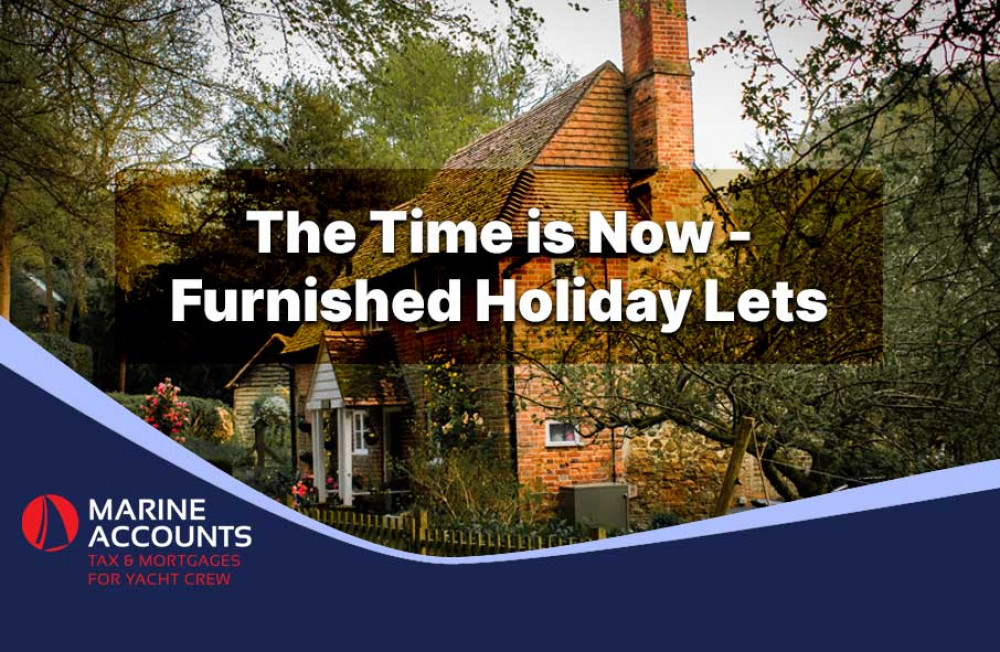The Time is Now - Furnished Holiday Lets
- Authors
-
-

- Name
- Patrick Maflin
-

Image source: https://www.pexels.com/photo/brown-brick-building...
You’ve been working in the industry for a few seasons and have accrued savings to show for your hard work.
Whilst you are proud of this, you’re also frustrated by leaving your hard-earned cash in an international account earning 0% interest.
At this point, many of your likeminded colleagues decide that it is time to make their money work for them, and subsequently invest in a rental property.
Whilst the concept of investing in a property with the intention of letting it is no new phenomenon, only a very small number of crew decide to look past the traditional model of long-term rentals to reap the benefits of an alternative type of property investment, Furnished Holiday Lets (FHL).
In this article we explain why investing in a FHL presents a unique opportunity, and why now is the opportune moment to jump in.
Read on to find out more or skip to a section that interests you most.
Chapters
- Why The Time Is Now!
- Long-Term Rental or Furnished Holiday Let?
- Qualifying Criteria
- Seize the Opportunity!
Why The Time Is Now!

Image source: https://www.pexels.com/photo/selective-focus-phot...
Despite the global vaccination march gathering pace, it remains doubtful that holidaymakers will be able to enjoy a restriction-free holiday abroad this summer, or in fact next summer (although we certainly hope so!).
If the debacle of the last 12 months has taught us anything, it is that this pandemic is anything but predictable.
This year, holidaymakers who would traditionally be jetting off around Europe or in fact further afield, have instead opted to spend their summer holidays in the UK.
As a result, the UK has seen accommodation prices and bookings soar.
Once these terrible times have passed and restrictions are nothing but a distant memory, some analysts suspect that new long-term trends will develop, with more and more families choosing to holiday at home amid concerns surrounding travelling whilst coronavirus remains present.
In light of this, the market for holiday accommodation has never been more attractive for prospective landlords.
Long-Term Rental or Furnished Holiday Let?

Image source: https://pixabay.com/photos/house-thatched-cottage...
Besides taking advantage of the buoyant domestic holiday market currently present in the UK, there are several tax advantages of investing in a FHL rather than a traditional buy to let property:
- From the 2020/21 tax year, landlords of long-term rental properties will no longer be able to claim their mortgage interest payments as allowable expenses. Instead, this will be claimed in the form of basic rate relief. No such rule applies to FHL’s and 100% of your mortgage interest and finance costs can be claimed as expenses.
- You can claim capital allowances on your FHL which is not an option for long-term rental properties. This means that you can deduct the cost of furnishing your property from your pre-tax profits. Furthermore, this acts as an incentive to invest more in furnishing your property to reduce your tax liability further.
- When the time comes to sell your property, there are capital gains tax advantages. You may be able to claim rollover relief or entrepreneur’s relief upon the sale of your FHL, which you cannot claim when you sell your long-term rental.
Combining the tax advantages above and beyond those of a long-term rental with the prospering holiday market that the UK is currently experiencing, investing in a FHL is more attractive than ever before.
Qualifying Criteria

Now that you’ve decided you want to operate a holiday let, it is important to note that a series of criteria need to be in order for you to be able to declare your rental income as a FHL and take advantage of the tax incentives that are on offer.
The three main conditions are as follows:
- Availability: You must ensure that the property is available for commercial holiday letting to guests for a minimum of 210 days (30 weeks), and you must actively promote this fact.
- Letting: The property needs to be let as holiday accommodation to the public for a minimum of 105 days (15 weeks) out of the 210 days that it is advertised as available.
- Pattern of Occupation: In the instances where the property is rented to one individual for more than 31 days, you cannot let the property in this type of ‘long term rental’ for more than 155 days (22 weeks) per year.
Seize the Opportunity!
After reading this article, if you wish to seize the opportunity and have any questions regarding the tax treatment of FHL’s, get in touch today.
Disclaimer: Any advice in this publication is not intended or written by Marine Accounts to be used by a client or entity for the purpose of (i) avoiding penalties that may be imposed on any taxpayer or (ii) promoting, marketing or recommending to another party matters herein.


